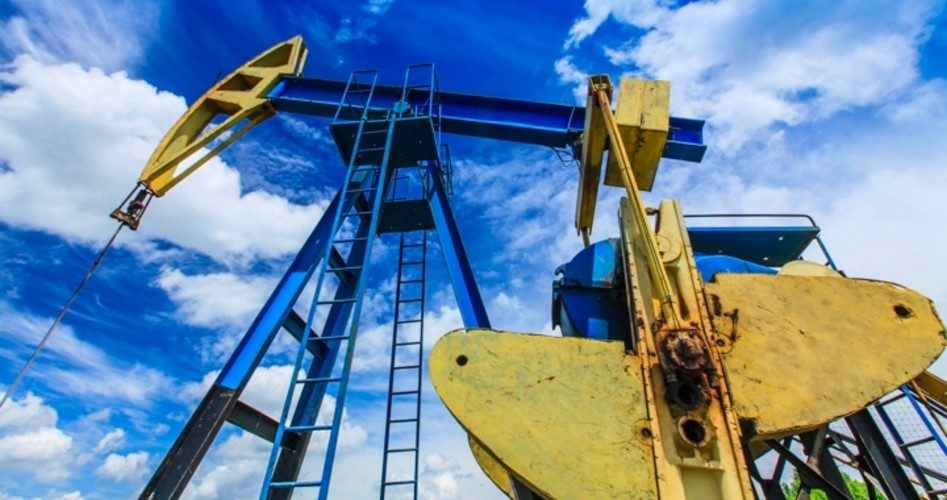
After reviewing the numbers from America’s oil and gas patches, Per Magnus Nysveen of Rystad, an international oil consultancy in Norway, declared that the United States is now taking on the role of “swing producer” that used to be played by Saudi Arabia and other members of OPEC, the oil producers’ cartel.
Those numbers are impressive. Fracking technology has led to a 65-percent increase in U.S. crude oil output in just the last six years and, according to Wood Mackenzie, another highly regarded energy consultancy firm: “The shale industry is just starting out; it is not even a teenager yet…. There is still plenty of room for growth.”
It is estimated that the United States will overtake Saudi Arabia to become the world’s largest producer of liquid petroleum products (oil, ethane, and propane) within the next two months — the first time that will have happened since 1991. As a result, oil imports have dropped to just 20 percent of America’s consumption, down from more than 60 percent less than 10 years ago.
Oil production in Texas alone would place it (if it were a country) in the top eight oil-producing countries in the world. As recently as 2010, the Lone Star State’s crude oil production was barely one million barrels per day (bpd); however, for the last three months in a row (through July), Texas is producing more than three million bpd. As economist Mark Perry put it, “This has to be one of the most significant increases in oil output ever recorded in the US over such a short period of time.” Perry estimates that Texas oil production will continue on its tear, surpassing four million bpd by the summer of 2015, which will then make it the world’s fifth largest producer.
The fracking boom has been a huge boost to to the economy of Texas, as well as having an indirect impa ct on the U.S. economy. Just in the last 12 months, employment in Texas has increased by nearly 400,000 — an astonishing 1,500 new jobs every business day.
But that triple in Texas fades into relative insignificance when looking at natural gas output in Pennsylvania, West Virginia, and Ohio. From November 2009 to July 2014, gas output there has increased by a staggering 800 percent, spurring the development of pipelines to ship these vast quantities of gas to the East and Gulf coasts and causing pricing disruptions in the natural gas markets.
Though as recently as June of this year the price of Brent crude was $115 a barrel, it is currently trading at $95 — causing gas prices at the pump in more than half the states to drop below $3.00 a gallon for the first time in years.
Innovation continues to expand the output from fracking wells. Since 2012, Conoco has increased the productivity of its wells by 30 percent. Such innovation has forced other oil and natural gas producers to revise their estimates of recoverable resources. In the Bakken formation in North Dakota, for example, Continental Resources has been running pilots of multiple wells in a honeycomb arrangement which would allow up to eight horizontal wells in an area that could previously have held no more than four. In addition they are experimenting with drilling three more sets of eight wells in deeper formations there as the Bakken formation looks more and more like a stack of pancakes just waiting to be developed. Said Warren Henry, a company spokesman, “This is like Saudi Arabia in the 1950s. Although we been here for the past six years, we’re just barely getting started.”
Pioneer Natural Resources, one of the most active drillers in the Permian Basin formation in Texas, revised its estimate of recoverable resources there from 50 billion barrels to 75 billion barrels, making it by far the largest oil field in the United States.
The almost exponential growth in production in the United States is making foreign oil ministers nervous, some of whom are calling on OPEC to respond. For instance, Iran’s oil minister, Bijan Namdar Zanganeh, wrote last week on the ministry’s website: “OPEC members should make efforts to offset their production to keep oil prices from further instability.” This is how a bureaucrat says “We’re losing ground to America and something must be done about it.” But Iran is caught in a pickle: It needs the revenues to fund its war efforts so it cannot afford to cut production in order to keep prices high.
America’s oil and gas revolution is also undercutting one of the primary foundational justifications for foreign interference in the Middle East: to protect the flow of oil back to the United States. In an interview on February 19, 1998 with Matt Lauer on NBC’s “The Today Show”, then Secretary of State Madeleine Albright, in trying to justify America’s intervention there at the time, said this:
It is the threat of the use of force … that is going to put force behind [our] diplomacy. But if we have to use force, it is because we are America: we are the indispensable nation. We stand tall and we see further than other countries into the future….
I know that the American men and women in uniform are always prepared to sacrifice for freedom, democracy and the American way of life.
She forgot to mention, of course, that the prime motivation at the time was to protect the flow of crude oil from the Middle East. What she failed to see was the technological innovation that was just around the corner that would reverse America’s dependency upon OPEC and the Middle East for its energy supplies, which is now making such outrageous foreign policy declarations increasingly irrelevant.
The fracking revolution is having, and will continue to have, impacts across the nation and around the world, from lower gasoline prices to increasingly phony foreign policy justifications. Not only is it helping substantially to revive the country’s economy following the Great Recession, it also has the potential to restore America’s belief in itself and in its future.
A graduate of Cornell University and a former investment advisor, Bob is a regular contributor to The New American magazine and blogs frequently at www.LightFromTheRight.com, primarily on economics and politics. He can be reached at [email protected].



